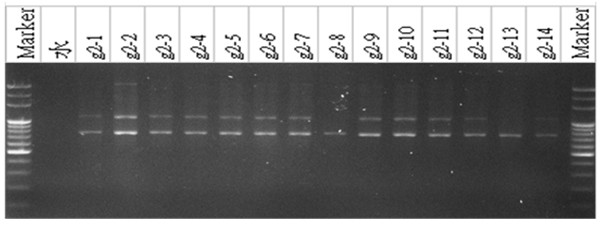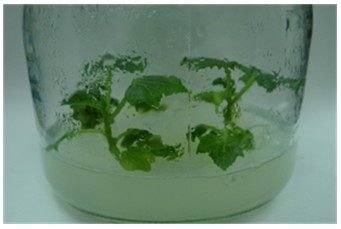 Home > Achievement > 2021 Research Project List > Developing of crops novel assisted breeding technology on pepper and melon Home > Achievement > 2021 Research Project List > Developing of crops novel assisted breeding technology on pepper and melon |
Developing of crops novel assisted breeding technology on pepper and melon
The most effective way to control plant diseases is to breed disease resistant plants. This project contains two objects. (1)A new SNP marker for the resistance gene of pepper anthracnose, which causes serious yield reduction of pepper fruits, has been developed and the genetic distance is 5 cM. (2)Melon cultivation is susceptible to Potyvirus infection, which hinders plant growth, reduces quality, and causes serious loss in yield. The most effective way to control the viral disease is to breed disease resistance plants. However, melon breeding hasn't made much progress for lacking virus-resistance varieties. The new plant breeding technology such as the CRISPR/Cas9 technique provided an efficient way to knock out host factors such as eIF4E protein which may therefore confer plant viral resistance in plants. This year we focus on designing new sgRNA/Cas9 constructs with different GC contents which will target different positions of eIF4E. By testing their performances on melon gene editing, we wish the gene editing efficiency of melon eIF4E can be improved, and therefore obtain the knockout mutants. Four constructs have been synthesized and successfully transferred in agrobacteria. The sequence of eIF4E of thirty-seven transgenic plants obtained in this year did not be edited.
.jpg) ▲Fig. 1. Inoculation results of Colletotrichum actatum on parents of ‘TSS-AVRDC No.4’. |
|
 ▲Fig. 2. PCR testing with specific primers of 35S promoter and Cas9 after transformation of eIF4E-g2 vector on agrobacteria. |
 ▲Fig. 3. Transgenic plants derived from melon ‘Charentais’ after being infected with agrobacteria containing the eIF4E-g2 vector. ▲Fig. 3. Transgenic plants derived from melon ‘Charentais’ after being infected with agrobacteria containing the eIF4E-g2 vector. |
